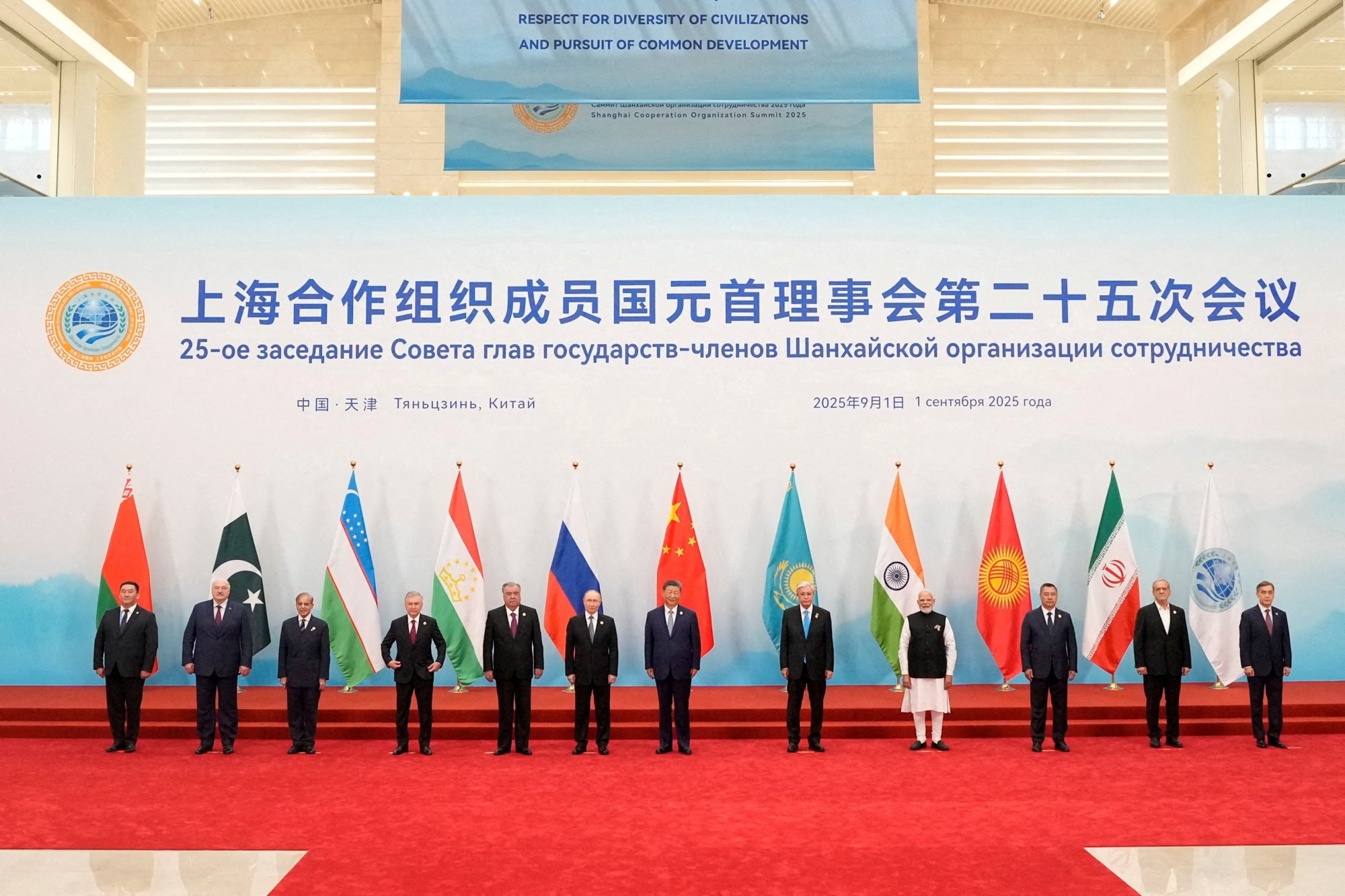
The 25th SCO Summit was held in Tianjin, China, in 2025.
- Attended by 10 full members: China, Russia, India, Pakistan, Iran, Belarus, Kazakhstan, Kyrgyzstan, Tajikistan, Uzbekistan.
- Occurred in a multipolar global context with Eurasia as a new frontline of power competition.
- For India: PM Modi’s first China visit in 7 years and first bilateral with Xi Jinping after the 2020 border clashes.
Major Outcomes of the Summit
A. Counter-Terrorism and Security
- Adoption of Tianjin Declaration reaffirming fight against terrorism, extremism, separatism.
- Strengthening of RATS with joint exercises and intelligence sharing.
- Cybersecurity as a priority: combating cyber terrorism and online radicalization.
- India flagged double standards on terrorism, indirectly targeting Pakistan.
B. Connectivity, Trade, and Economic Cooperation
- China pushed for deeper integration with BRI; India opposed due to CPEC sovereignty violations.
- Iran highlighted Chabahar Port and INSTC as neutral alternatives.
- New working group created on digital economy, e-commerce, and fintech.
- Agreement on local currency settlements: step towards de-dollarization.
C. Energy and Climate Cooperation
- Energy-rich members (Russia, Kazakhstan, Iran) emphasized stable flows.
- Proposals for cross-border pipelines, regional electricity grids, renewable cooperation.
- India focused on clean energy technologies and affordable financing.
- SCO adopted a Joint Climate Action Plan on desertification, water security, renewables.
D. Institutional Expansion and Reform
- Belarus joined as 10th full member.
- Mongolia, Afghanistan, Turkey showed deeper interest.
- India pushed reforms: transparency, consensus-based decisions, reduced dominance of one member (China).
India’s Role and Strategy at the Summit
- Terrorism Focus: Modi highlighted terrorism as greatest regional threat; indirect criticism of Pakistan.
- Connectivity with Conditions: Supported Chabahar and INSTC, rejected projects violating sovereignty.
- Balancing Great Powers: Active participation despite tensions with China and Russia-China closeness.
- Economic & Energy: Stressed energy needs; proposed cooperation in pharma, IT, digital tech.
Importance of SCO for India
- Strategic Access to Central Asia despite Pakistan’s obstruction.
- Counterbalance to China-Pakistan nexus.
- Ensuring Energy Security from Russia, Iran, Kazakhstan.
- Platform for narrative building on terrorism, sovereignty, transparency.
- Bridge in multipolar politics; balancing SCO with Quad, G20, etc.
Challenges and Limitations
- China’s dominance in SCO.
- India-Pakistan rivalry spilling into the forum.
- Russia-China convergence reduces India’s room for maneuver.
- Non-binding declarations reduce effectiveness.
- Divergent definitions of terrorism.
Wider Geopolitical Implications
- For Eurasia: SCO is becoming principal regional platform rivaling NATO/EU.
- For Global Governance: Rise of non-Western groupings as counterweights to West.
- For India: Balancing SCO (China-Russia) with Indo-Pacific alignments (Quad, G20).
- For Economy: Steps toward de-dollarization, creation of energy corridors.
Conclusion
- SCO Summit 2025 reinforced relevance of the forum but highlighted contradictions.
- For India, SCO is strategic necessity: counter terrorism, secure energy, balance great powers.
- Challenge: Stay engaged without being overshadowed; use SCO for narrative building while deepening Indo-Pacific ties.
- SCO is not optional for India but essential for maintaining its Eurasian footprint in a multipolar world.
